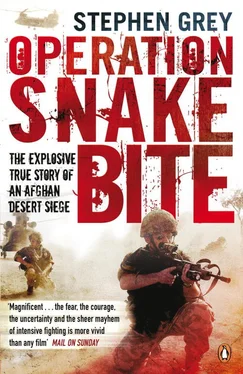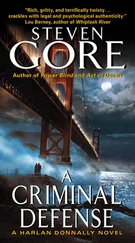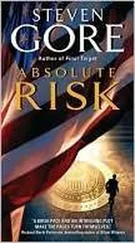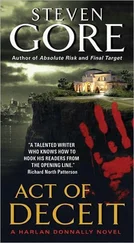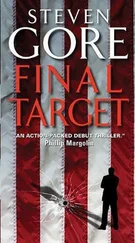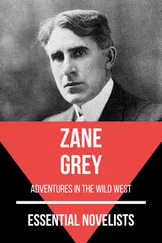The interpreter was shouting for help, but Caglar shouted back: ‘No. I can’t help you at the moment. I just need to… I need to make sure there’s no other devices here.’
Out on another patrol in the green zone, Mike Scott, the company sergeant-major for the 2 Yorks in Sangin, heard and saw the blast, and knew it was an improvised explosive device, an IED, but like others he could not quite pinpoint the location. He remembered turning to Colour Sergeant Mark Syron and saying, ‘Fuck, I hope that’s not a command one,’ meaning a command-wire detonated explosive – the worst type because it was hard to detect.
His fears turned out to be well founded. The explosion detonated a concealed 105 mm artillery shell. It had been ‘daisy-chained’ to connect to two pairs of mortar shells. But, luckily for the rest of the patrol, these had not gone off
McDermid had set off that morning with a team of seven British soldiers plus the Afghans. But they had been hearing something that worried them as they listened in on the Taliban’s radio network.
‘Usually they’ll say they’re watching and they’re going to shoot you with their big guns and take no mercy and all that shit,’ said Caglar later. ‘But it’s normally just probably to wind you up. But this time they were saying exactly where we were.’ The Taliban were giving names of buildings or clumps of trees they were walking by, and the soldiers turned to each other and said, ‘Actually, yes, we are right there.’
McDermid decided to split the patrol in half. It was an old anti-ambush tactic from Northern Ireland called ‘satellite-ing’. An enemy will only see one half of the patrol at any one time. And so they will be afraid to attack because they cannot tell if their back is covered. The tactic seemed to work. The Taliban radio went silent.
Unfortunately between McDermid and Caglar, only McDermid had a radio. Now both he and his radio had disappeared. And Caglar had no idea where his other comrades were.
Caglar was trying to work out what to do. He saw the Afghans start to run around in panic. He shouted, ‘Stop! There might be more bombs.’ The trouble was the interpreter was in no fit state to help to communicate.
He ran forward to try to treat him. ‘He had a big chunk missing out of his thumb,’ said Caglar. ‘There was blood all over his hand. All his face was bloody, his hair was all matty and dusty and had blood all over it. It was pretty much as if from his waist upwards he’d just been sprayed with shrapnel. There was just little holes all over. His body armour had… it was just pierced. And he had one big hole in like… just above his collar bone there. In his neck.’ Caglar tried to give him morphine. But he realized his own hands were shaking. He got an Afghan soldier to put the needle in and to put on some bandages.
Then a car pulled up about 15 yards from the bomb crater. Caglar shouted, ‘Stop,’ and then bundled the wounded interpreter into the back. He shouted to the driver, ‘DC!’ (‘DC’ was the district centre, the main British base). He hoped he would understand and take him back for evacuation. That was all he could think of doing at that moment.
Turning round, he started looking for McDermid. He noticed part of his body armour. ‘It was just like sat there as if someone had just put it there.’ And then he saw the top part of his rifle, with the rest torn off. ‘It was leaning against the wall. Just like someone had just placed it there.’
In his heart, he knew that, with a leg missing, he must be dead. But he shouted anyway.
‘And I tried shouting for him, thinking, you know, that he might… he might still be alive. I knew… when it first happened I knew that he was dead because from the blast where it was he was directly above it when it went off. But I shouted for him anyway. Just in the hope that he might shout back. But I didn’t get any reply.’
Caglar needed to tell someone what had happened. They needed to find McDermid, and he needed to warn others that there could be secondary devices. And he needed to get the Afghan soldiers safely back to base.
But at that moment he was completely alone – out of touch with his own army and alongside soldiers who hardly understood a word he said.
‘Anyone got a mobile phone? Mobile phone?’ he shouted.
‘Uh.’
‘Right. We need to go back to camp.’
‘Uh.’
‘Tangiers [the men’s patrol base].’
‘Uh.’
‘Right. We’ve got to go!’
‘Uh.’
Nothing seemed to register. Caglar realized he needed to go off alone. He got the ANA on to a piece of grass and set up for all-round defence. Then he picked up his machine gun, slung it across his front and started to ‘peg it’.
At first he skirted along the walls of the alleyways, trying his best to think of anywhere another bomb might be laid. All he could think of in his head was: ‘Boom! Boom! Boom!’ Then he was into Sangin’s main bazaar, and it was packed with men. It was the middle of the day. Everyone turned and stared at the spectacle of a lone British soldier running through their midst. Most days, the market was friendly territory. But Caglar knew he was vulnerable. In his mind, anyone was now a potential Taliban spy or a kidnapper. He raised his pistol as he ran along, firing shots in the air to clear a path.
‘The run felt like for ever! I was totally and utterly blowing out my arse, but I was still running. I don’t know how I was still running. I think it was just so much adrenalin pumping through.’
Reaching the Tangiers base, Caglar flung his helmet on the floor and found Sergeant Mattie Lynn in bed. He’d heard the explosion, but then you heard explosions all the time.
‘Mattie! Mattie!’
‘What? What?’
‘Fuck! The boss is dead!’
They found there wasn’t even a spare radio at the base. All of them were out with patrols. Together, they jumped in a WMIK and sped down the road to the bomb site. They found the rest of the soldiers from the patrol still hadn’t turned up, so they drove on to the main Royal Marines compound at the district centre. Caglar was glad to find the interpreter had made it back. Already by now, a quick reaction force of marines had been sent out, although they hadn’t located the blast site. Caglar could now guide them in.
That night, Caglar thought back over his time knowing McDermid. A forty-three-year-old from Glasgow, McDermid was a volunteer for the front line. After twenty-five years in the army, he had risen through the ranks from private soldier to officer, ending up with a staff position at the Sandhurst military academy. But he had volunteered for a tour in Afghanistan. He had told Caglar that morning: ‘I am in a good mood this morning, because I woke up and listened to the Proclaimers.’
For the soldiers that worked in Sangin, now, it was the danger of these IEDs that hung heavy over their patrols. The British and Afghans had bases all over the town. They dominated this urban centre. But the Taliban guerrillas in their midst had not departed, merely gone underground. Their tactics were now more subtle and more unnerving.
For Scott, as he tried to motivate his soldiers after McDermid’s death, he realized the blast did serve at least one thing positive. ‘It might sound a bit callous, but it did give some fucking people a big wake-up call. Until that point, it was becoming a bit more like war tourism than actually doing a job, and that really did focus people’s attention.’ He remembered briefing young soldiers who asked, ‘What can we do to stop these command wires?’ And all he could say was, ‘Fellas, fucking common sense.’ There was no magic gadget to stop them.
But there was ultimately one weapon that could fight these hidden killers: the support of the local people. However ingeniously a bomb might be hidden, it was rarely possible to hide it from the local population. If they came on side and started informing, then the bombs could be found and disarmed quickly. That gave Scott both the chills and a glimmer of hope. While the bombs continued, it meant they had plenty of enemies out there. But it also showed that, if they got things right with the people, there was a way to win in this place.
Читать дальше
